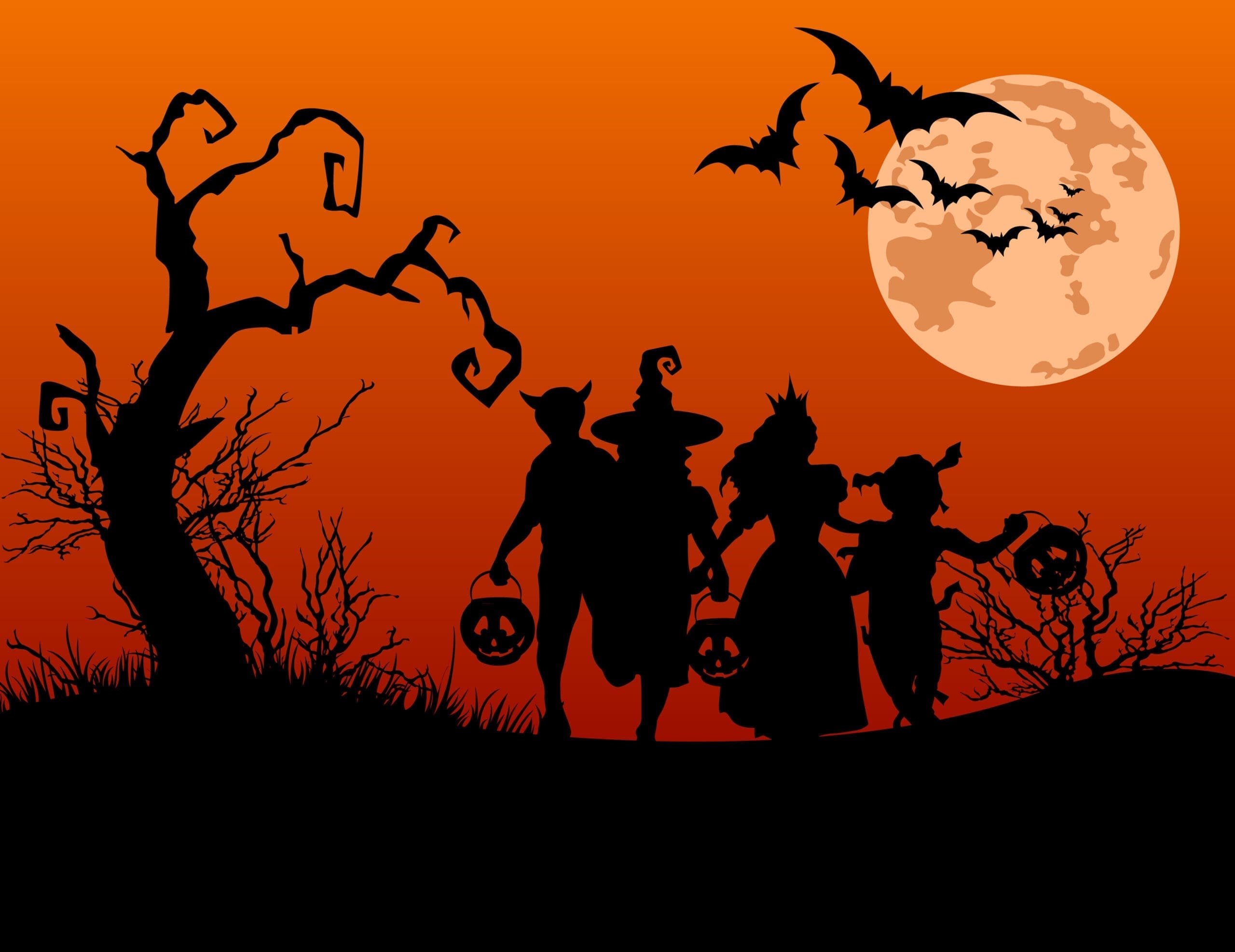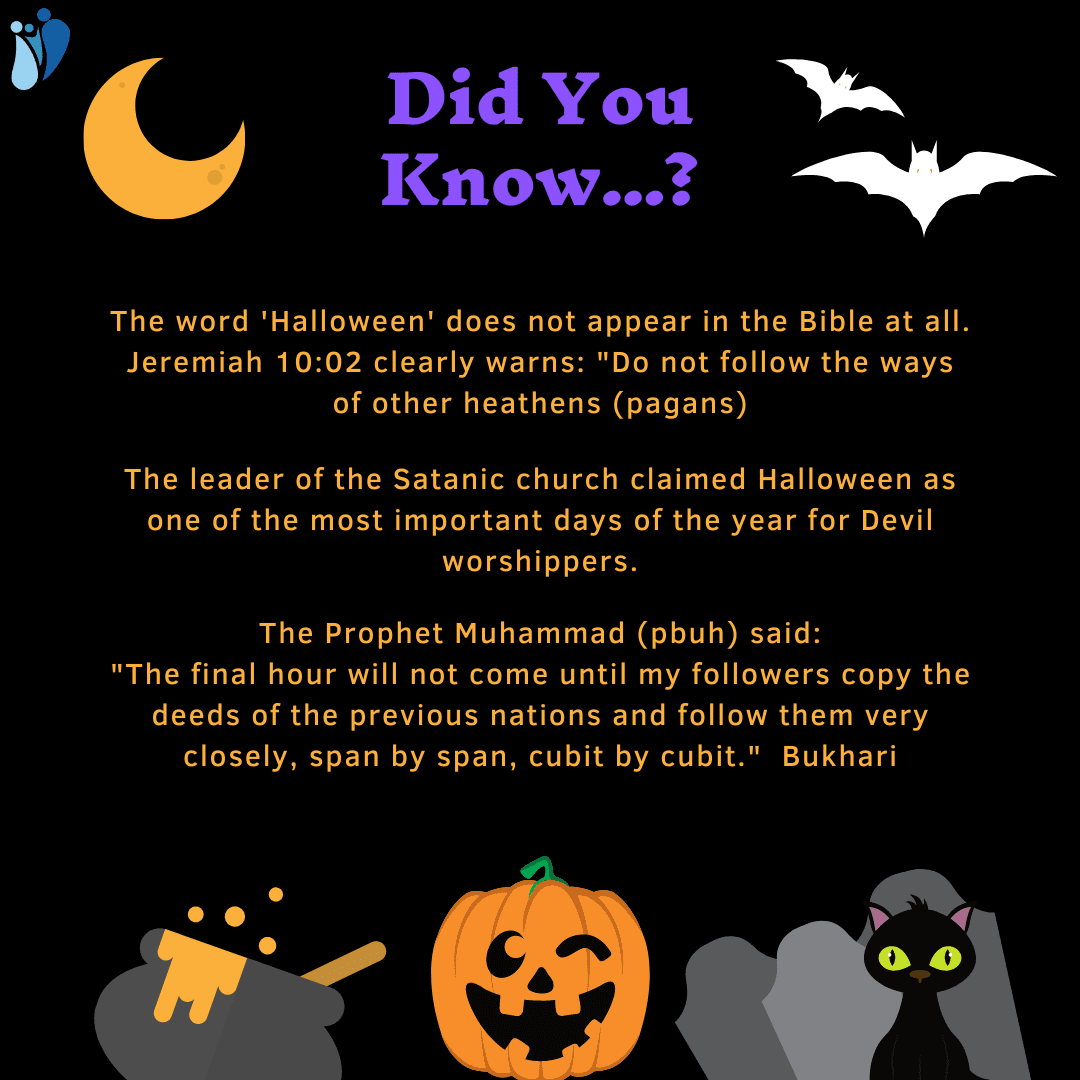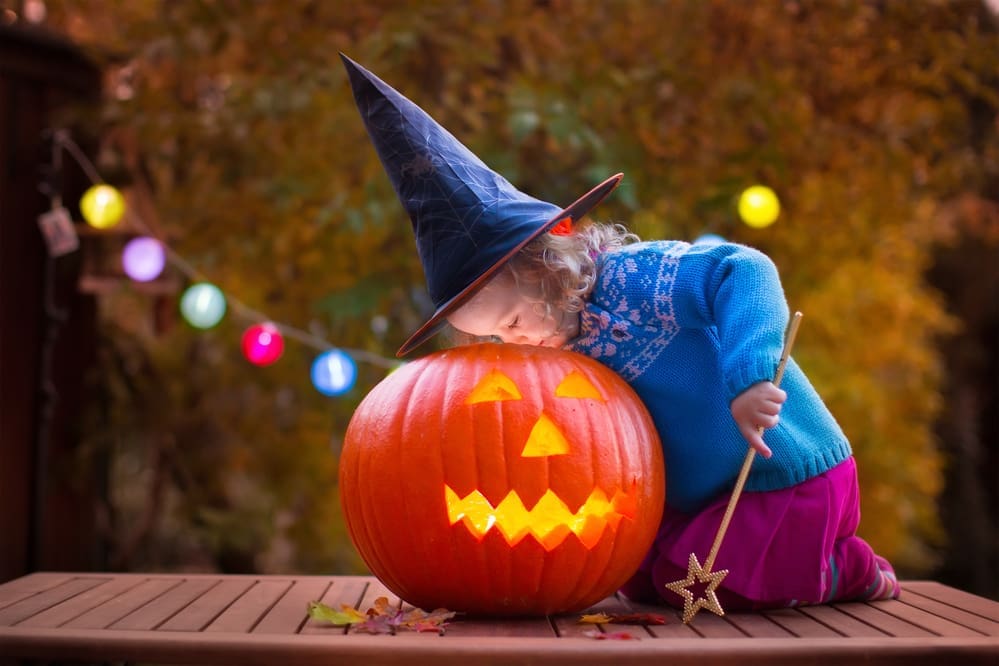Halloween & The Muslim Mom

As Halloween becomes more mainstream, the line between what is permissable and what is harmless fun can get blurry. In this article, we’ve dissected all things Halloween, from it’s origins to today’s practices, so you can make the best decision for your own family.
History of Halloween and it’s traditions
Like most things that exist in the United States today, Halloween originated in Europe, specifically Ireland about 2,000 years ago. The Celtic tribes used to practice the Druid religion, where they worshiped “Samhain,” the Lord of Darkness, or Lord of the Dead on October 31st. This was the night before the Celtic New Year on November 1st.
Ghosts
In this faith, the Celts believed that the ghosts of the dead roamed the earth and that their Priests (Druids) were able to communicate with them on this night.
Costumes
During this night, the Druid Priests built large fires and people gathered to burn crops and animals as sacrifices to Samhain. They wore animal heads and skins as costumes to scare away the spirits, and not be recognized and cursed by the spirits.
Trick or treating
The Druid priests would go from door to door to demand specific types of foods to appease the spirits. They promised good fortune to those who donated generously, but if the inhabitants were unable to provide these foods, the Druid priests would curse them with trouble, sickness and death.
Bats and black cats
It was believed that these animals could communicate with the dead, and that black cats were able to house the souls of witches.
How did Halloween come into Christianity?
In the seventh century, the Pope designated November 1st as All Saints Day, as a time to honor saints and martyrs. Many people believed that as Christianity spread to Celtic lands, the Pope wanted to attract people to the Church by attempting to replace the holiday celebrating Samhain with a related, Christian-based holiday.
All Saints Day was known then as Alholownesse, in Middle English, and became known as All Hallows. The night before (the night of Samhain) became known as All Hallows Eve, or Holly Eve (because it was the night before the holy celebration), and eventually Halloween.
While the intention was to gain followers to Christianity, many of the original pagan customs survived and thrived up till today.
Halloween now represents a multi-billion dollar commercial holiday. While the roots of the traditions that are practiced today are lost on many people, as Muslims we must make an effort to understand the history of cultural practices so that we can make the correct choice for ourselves and our families.
Even if you decide that you don’t want your children to participate in Halloween or go the neighborhood trick or treat party, others might not see it the same way. Here are some ways you could respond to common Halloween pressures:
When you’re told to relax because it’s just harmless fun
While Halloween presents itself as a simple costume-wearing, candy-collecting fun holiday, we have to be careful to understand what Halloween stands for. Islam tells us to think, understand, and make the best decisions for ourselves and our families. Mindlessly following the rituals of others goes against that.
When people try to convince you to take part because everyone else is doing it
Haraam is haraam even if everyone is doing it. You are answerable to Allah swt for yourself and your flock (children). Make sure you have educated yourself enough that you can justify your actions.
When your kids tell you that they just want candy
Buy them some candy! Going door to door and saying “trick or treat” is giving people an ultimatum. “Either give me candy or I will do something to trick you.” Muslims are not allowed to beg (in this instance, for candy), nor are we allowed to threaten people. This seems extreme, but there are older kids who throw eggs or toilet rolls at people’s houses on Halloween.
When others ask you, “What’s wrong with dressing up?”
Absolutely nothing at any time throughout the year. Historically, children were dressed up in scary costumes on Halloween to disguise themselves and scare away the spirits, who people believed crossed over from the dead on this night. The costumes worn then were animal heads and skins. The question we should then ask is, “Why do we want to copy and continue this practice?”

What can you do?
Rather than forbid your children from participating in Halloween celebrations, aim to EDUCATE them. Communicate effectively so that they UNDERSTAND where Halloween comes from and how it contradicts the teachings of Islam. Insh’Allah your children will come to their own correct conclusion.
Seek out events being held at the MASJID on Halloween evening, so your kids can gather with their friends and enjoy fun Islamic activities together.
Teach your kids to RESPECT other cultures and faiths, even though we don’t partake in them. If you get a lot of kids coming to your door for Halloween, GIVE them candy. Show your children how to be kind and respectful while maintaining their Muslim identity.
Allow your kids to DRESS-UP as a robot, or princess throughout the year so that Halloween loses it’s significance of being a day when they get to be in a costume.
CELEBRATE the season of Autumn or Fall – take your family to a local Pumpkin farm, or collect leaves as they fall from the trees. It’s perfectly okay to cultivate a love of nature and Allah swt’s creation, and make that a focus over the Halloween traditions that others are doing.
EXPLAIN that Halloween has become a commercial holiday where parents spend a great deal of money on costumes and candy. Instead, look for ways together that you can put that money to better use by DONATING it to someone who needs it. Make Ramadan, Eid-ul Fitr and Eid-ul Adha a BIG DEAL! Get excited, plan activities, decorate the house, include friends and relatives, buy gifts – your enthusiasm will be CONTAGIOUS for your kids, and Insh’Allah they will get even more excited than you.


